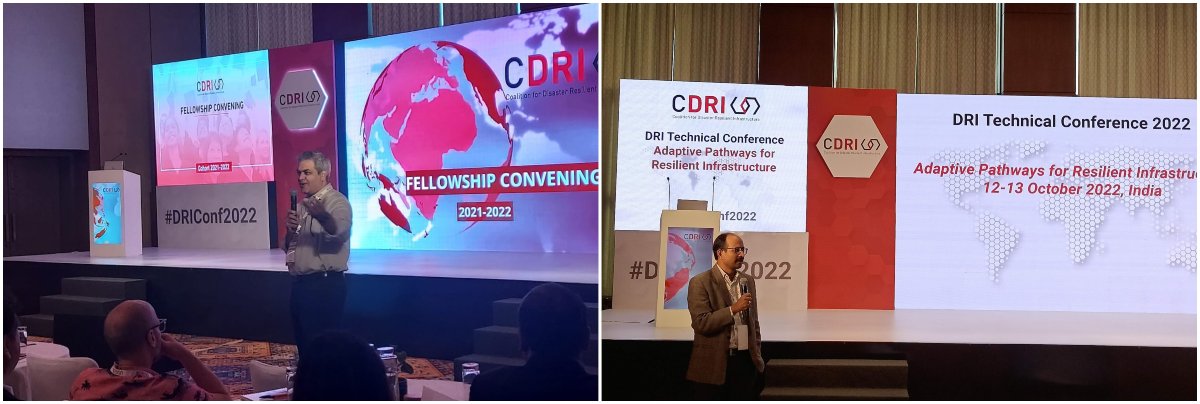- +91-11-4044-5999
- info@cdri.world
-
Copernicus Marg, New Delhi, INDIA

The Coalition for Disaster Resilient Infrastructure (CDRI) held a DRI Technical Conference 2022 - Adaptive Pathways for Resilient Infrastructure today, at Karma Lakelands, Gurugram, to bolster global thinking and action on climate and disaster resilient infrastructure (DRI) through knowledge creation, curation, and dissemination. With a focus on various aspects of resilient infrastructure, the 3-day event commenced yesterday (11 October 2022) with reflections by the Cohort 2021-22, technical experts and jury members of CDRI Fellowship Programme. The last day of the conference, coinciding with the International Day for Disaster Risk Reduction (13 October 2022) tomorrow, will felicitate Fellows after a panel discussion on ‘Action Agenda for Adaptive Pathways in Disaster Resilient Infrastructure.’
About DRI Technical Conference: The conference saw participation of experts from the National Institute of Urban Affairs, India; Partnerships for Infrastructure, Thailand; Resilient Urban Planning and Development, Germany; Himalayan Risk Institute; IIHS India amongst other reputed institutions. Distinguished academicians from academic institutions such as the University of Oxford; University of Tokyo; IIT Bombay, Delhi, Roorkee, and Kharagpur were also a part of the conference. The conference brought together researchers, practitioners, and policymakers working on DRI to exchange, review, critically assess and evaluate pertinent issues.
Climate change and disaster risks, dynamic geopolitical situations, and volatile market conditions entail societies making long-term infrastructure investment decisions. Building climate and disaster resilience in infrastructure systems is essential for long-term sustainable development and the safety of investments. The systems require making risk-informed decisions through holistic, systemic, and multi-disciplinary analysis. Adaptive and integrated disaster resilience enables nations and communities to build resilience in an integrated manner and provide the ability to deal with complexities and uncertainties.
About Fellowship Programme: The first Cohort of CDRI Fellows was onboarded in June 2021 with 21 teams from nine countries engaging in a variety of research projects that covered diverse hazard conditions. Solutions emerging from this Cohort include strengthening road resilience using landslide susceptibility models, incorporating resilience in ports, using AI and machine learning to strengthen communications, monitoring river migration at sites of critical bridge infrastructure and developing future wetlands inventory for disaster risk reduction in the Himalayan region.